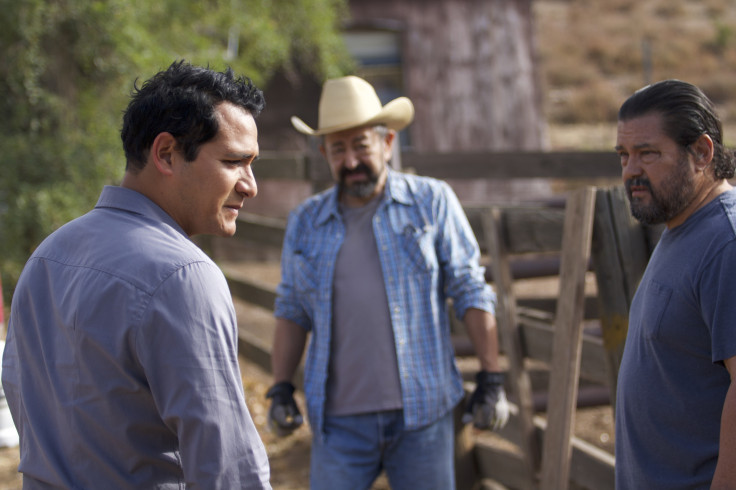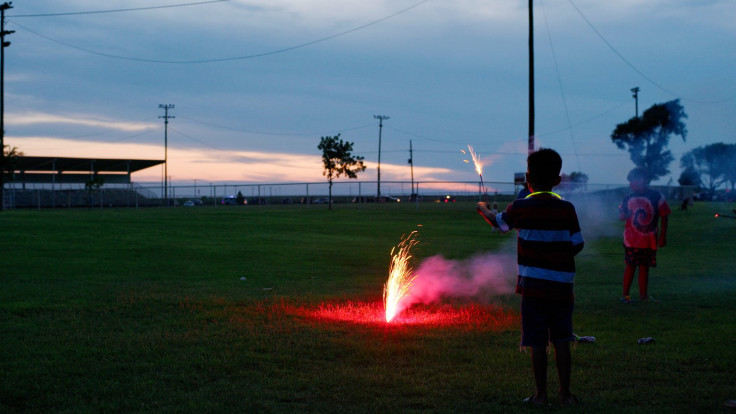
The rich tapestry of the Latino experience in the U.S. will be explored during the next four Mondays as Latino Public Broadcasting's signature series VOCES returns, this time in a fully digital format that is being branded as VOCES SHORTS. The season premiers tonight with the narrative short film The Kill Floor which will be streaming through PBS.org and the PBS App, available on iOS, Android, Roku, Apple TV and many other services.
Besides The Kill Floor, which takes us into a meatpacking plant where a predominantly Latino workforce has to face the perils of the early stages of the pandemic, the full slate of short films includes Sentir el Son, directed by Karla B. Duarte (February 19), When it's Good, it's Good, directed by Alejandra Vásquez (February 26) and Sabor Ártico: Latinos en Alaska, directed by Indra Arriaga Delgado (March 4).
"These four new shorts offer an eye-opening look into worlds that are rarely explored," said Latino Public Broadcasting (LPB) Executive Director and VOCES Executive Producer Sandie Viquez Pedlow to The Latin Times. "From a drama about meatpackers at the front lines of the COVID pandemic to a growing community of Latinos in Alaska, from a dreamlike exploration of identity to an autobiographical look at life in a Texas oil town, this series offers four up-to-the-minute snapshots of the diversity and complexity of Latino life in America today."
VOCES Seeks a Younger Audience
VOCES launched back in 2012 and quickly became one of Latino Public Broadcasting's most popular series. For years, the format remained the same: around 4 or 5 documentaries per season that looked at the culture, the arts and the issues of the diverse Latino community would be broadcast on PBS. But then streaming came along and changed the game, prompting VOCES to shift its strategy to stay up to the times.
VOCES SHORTS is the first fully digital series curated by LPB and it also signifies the anthology series' push to reach a different kind of audience. "We want to reach a younger, more diverse audience which are on social media and streaming", explains Viquez Pedlow. "Traditionally, public media has a different demographic. You know, viewers are older, and this push is to reach those younger viewers where they are and have them start a dialog online."
Even though the nature of distribution has shifted a bit, Viquez Pedlow is quick to acknowledge that LPB's standards remain the same. "We're looking for projects that are timely, explore relevant issues and take creative risks. But most importantly, they provide that lens through which we can explore the diversity of the Latino community. We get many projects, we set up a two-day panel with filmmakers and execs and select those that we feel can have an impact at a national level."
Ultimately, however, it's about the filmmakers and the window of exhibition VOCES presents. "I think it's really important because some of these filmmakers spend a number of years creating these projects. It's very difficult to get funding for these, so it's a love of craft and persistence. And once we select them for VOCES, we bring their work to a larger national platform where more people will see it, which is a wonderful thing."

An Invaluable Resource for Latino Voices
Alejandra Vasquez is a Mexican-American director from the small town of Denver City in Texas. Growing up, she developed a love for movies but by the time the college years came around, filmmaking didn't seem like a very distant possibility. "It felt super inaccessible", as she now explains. She started taking film classes in New York, learned the ins and out of the industry bit by bit and hasn't looked back since. Now that her short film When It's Good, It's Good is now part of VOCES SHORTS, she feels that the effort is finally paying off.
"It's going to get a wide reach and I think as independent filmmaker it's an invaluable resource to have a platform like VOCES, especially one that champions Latino voices. It's a huge platform and it's really exciting for me to get it on public media and to put the film in front of people who can connect with it."

When It's Good, It's Good is an autobiographical short that took Vasquez back to Denver City to document how the boom or bust nature of the town's oil industry fuels the life of the town. Filmed across the five-year period that began with Trump's election in 2016, the movie delves into the complicated political landscape through the lens of Vasquez's own family.
"People say don't talk to your family about politics, but that's essentially what I wanted to do", explains Vasquez. "As I got deeper into the process, I realized that it's about much more than my family, it's about wanting to understand other people, as opposed to wanting to argue with your loved ones about politics because you don't agree with them. I wanted to understand them instead of rejecting my hometown and rejecting where I come from."
Even though When It's Good, It's Good is a distinctly Latino story, the fact that it can still resonate with any family in the U.S., regardless of their origins, hasn't gone unnoticed. As Viquez Pedlow puts it: "I don't see our audience as just Latino, my goal is to bring these stories to an American public, to people from all walks of life and different cultural backgrounds."
*VOCES SHORTS will be streaming a new episode every Monday from February 12 to March 4 on all station-branded PBS platforms, including PBS.org and the PBS App, available on iOS, Android, Roku, Apple TV, Amazon Fire TV, Android TV, Samsung Smart TV, Chromecast and VIZI as well as LPB's social media platforms.
*Alejandra Vasquez is currently on the festival circuit for her first feature-film called Going Varsity in Mariachi, which premiered at the Sundance Film Festival last year.
© 2025 Latin Times. All rights reserved. Do not reproduce without permission.





